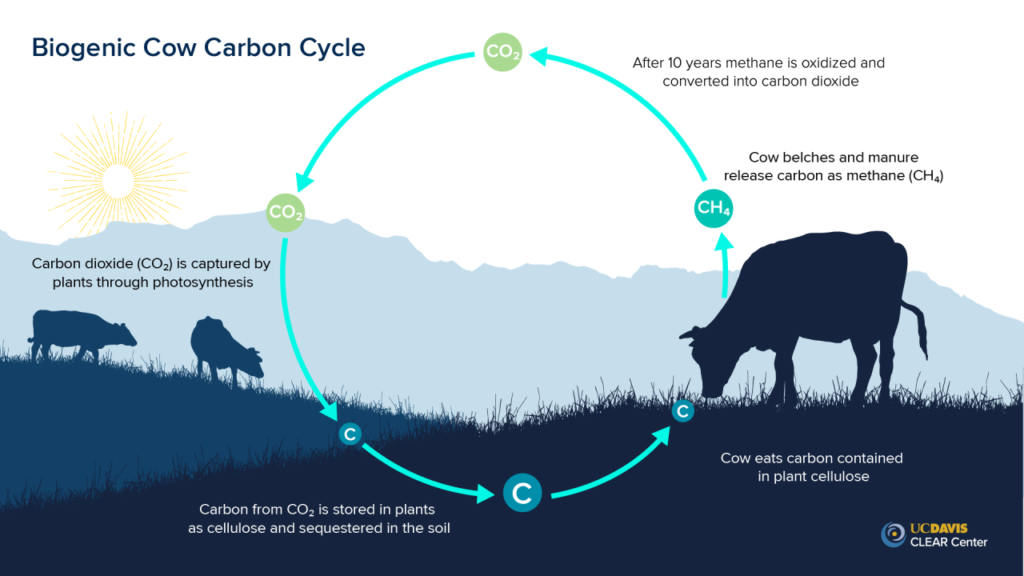With the event of Earth Day, there was a lot of talk about global warming and climate change, and many people are looking for ways to reduce their carbon footprint. Some well meaning but misinformed people, as well as other with a manipulative agenda claim that beef production is one of the worst contributors to climate change, and cutting back on beef consumption will have a significant impact on global warming, but in fact beef production has a very small carbon footprint and can be a big part of the solution.

The big reason beef production has a bad rap is because as cows digest there food, especially rough forage like the grass found on rangelands they emit methane. Methane in a greenhouse gas that has a much higher warming potential that Carbon Dioxide, but what has been overlooked, and is now beginning to be more fully understood, is methane only last in the atmosphere for about 10 years. It is part of a natural cycle that results in cattle being essentially carbon neutral. Also, as ranchers manage grazing of cattle, they can increase forage production, and over time improve the soil so it can store more carbon. Cattle grazing also provides many other eco-system services including wildfire fuel reduction, reducing erosion, and preserving wildlife habitat. All this and more while providing a delicious nutrient dense food.

